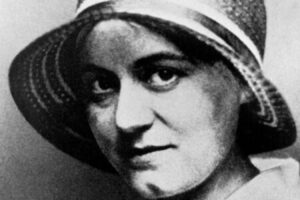There were widespread calls for action. Mass shootings, rising suicide rates, and an opioid epidemic were just a few of the signs that the United States had a mental health crisis on its hands. The use of psychotropic medication was increasingly common. Suicide rates among all Americans had risen 30 percent from the beginning of the millennium, and among teens, the increase was even steeper.
That was before COVID.
Paired with racially charged police killings, protests, and riots, the coronavirus pandemic exacerbated America’s already fragile psychological state. Economic woes and medical concerns have been piled on top of existing worries and political tensions. Personal interaction and religious practice—two important antidotes to loneliness and depression—have plummeted. Fear and anxiety have become dominant forces in American culture and politics.
How can we escape?
“There is no fear in love, but perfect love casts out fear. For fear has to do with punishment, and whoever fears has not been perfected in love”.
1 John 4:18
Love is the path out of fear. But what does that mean?
“Greater love has no one than this than to lay down one’s life for his friends”.
John 15:13
Fear feeds on obsession with self. When we are consumed by the desire for self-preservation, self-vindication, and self-aggrandizement, we inordinately fear the things that threaten those goals. Illness, job loss, social disapproval, and political defeat become the greatest evils, to be avoided at all costs.
It is possible to live a better way, even in the face of enormous challenges. Nazi concentration camps were intensely anti-human environments. People struggled to maintain the moral standards that distinguished animal from human life. Fear pervaded existence as the struggle for survival crowded out every other concern.

But there were some who retained humanity, even in the midst of such degradation. They did so by placing love above fear. Heroic figures such as Dietrich Bonhoeffer, Edith Stein, and Maximilian Kolbe were not victims but victors in the struggle between good and evil. They prevailed because they managed to put even the most primordial of human fears—death—in its rightful place. It was subservient to love—love of goodness, love of fellow man, love of God.

This kind of love may seem superhuman, and perhaps it was. All three were devout Christians. Christ is the supreme example of “laying down one’s life” for others. When Maximilian volunteered to take the place of a fellow prisoner condemned to death by starvation, he did so in conscious imitation of his Savior.
Yet all of us—Christian or not, heroically virtuous or not—have the capacity to choose others over self, love over fear. There are many training grounds for this orientation to others: civic organizations that better communities through volunteer work; athletic programs that put the welfare of the team ahead of individual preference; business enterprises that achieve profit by providing goods and services that are valued by consumers; and of course families, in which care for others above self is modeled by parents and inculcated in children.
“Perfect love casts out fear.” Perhaps if we focus less on stamping out the objects of our fears and pay more attention to contributing to the good of others, we’ll find that fear and anxiety and its attendant pathologies—alcohol and drug abuse, poor mental health, social discord—will abate. C. S. Lewis wrote that joy “is a by-product. Its very existence presupposes that you desire not it but something other and outer.” Lewis was expressing a fact well-established in theory but oft-neglected in practice: The more we pursue joy, happiness, contentment, the more they elude us. But if we turn out of ourselves to pursue the good of others—to love—then joy and peace will find us.


